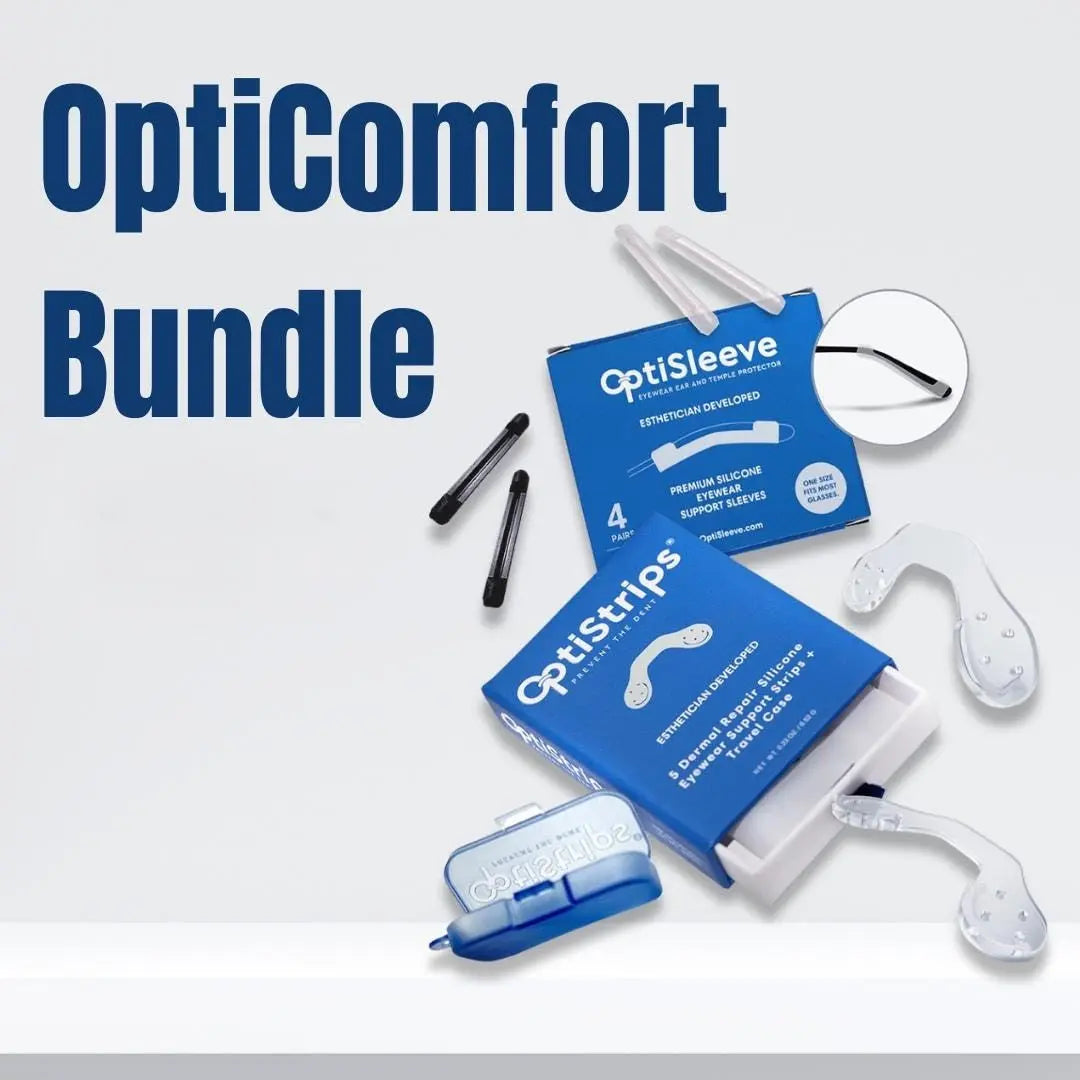

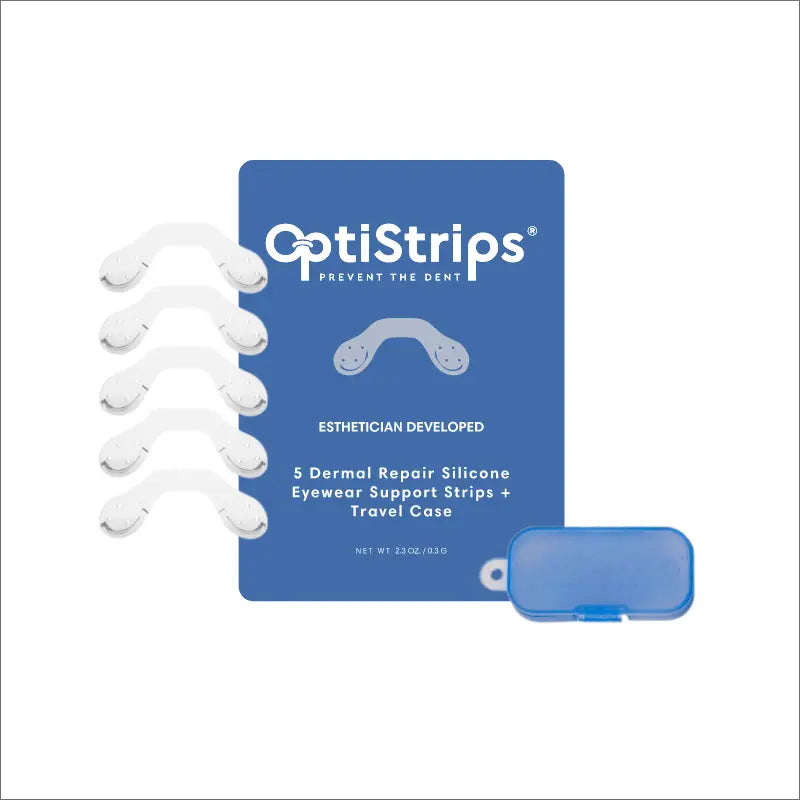
OptiComfort Bundle, Anti-Slip Eyeglass Accessories Set with Silicone Nose Pads & Ear Grips for Glasses, Sunglasses & Safety Eyewear
OptiComfort Bundle, Anti-Slip Eyeglass Accessories Set with Silicone Nose Pads & Ear Grips for Glasses, Sunglasses & Safety Eyewear
Experience Ultimate Comfort with Silicone Nose Pads
Keep your glasses secure, comfortable, and irritation-free with the OptiComfort Bundle a complete eyeglass accessories kit designed for stability and all-day comfort.
This premium set includes OptiStrips Soft Silicone Nose Pads and OptiSleeve Silicone Ear Grips, offering the ultimate anti-slip solution for anyone tired of their glasses sliding down their nose or slipping behind their ears.
Whether you’re working long hours, exercising, or just going about your day, OptiComfort ensures your frames stay perfectly in place while reducing pressure and red marks. Made from hypoallergenic, latex-free silicone, both accessories are gentle on your skin and compatible with eyeglasses, sunglasses, and safety eyewear of all types.
If you’ve been searching for nose pads for glasses, anti-slip ear grips, or a complete eyewear comfort solution, this bundle delivers the best of both worlds stability and softness in one smart package.
Key Features
Complete Eyeglass Comfort Set: Includes OptiStrips nose pads and OptiSleeve ear grips for full-frame stability.
Anti-Slip Design: Prevents glasses from sliding down your nose or falling off your ears even during active use.
All-Day Comfort: Soft silicone materials relieve pressure points and eliminate red marks or irritation.
Universal Fit: Works with metal, plastic, rimless, and safety frames, ensuring a snug and secure fit.
Reusable & Washable: Durable silicone can be cleaned and reused multiple times without losing grip.
Skin-Safe Materials: Made from hypoallergenic, latex-free, medical-grade silicone safe for sensitive skin.
Travel-Friendly: Comes with a compact case for easy storage and portability.
What’s Included
1 Box OptiStrips™ (5 Silicone Nose Pads) – Reusable anti-slip nose cushions for glasses.
1 Box OptiSleeve™ (4 Pairs Ear Grips) – Soft silicone ear sleeves for comfort and stability.
1 Compact Travel Case – Keeps accessories organized, clean, and easy to carry.
Common Questions
Q: How can I stop my glasses from slipping down my nose or behind my ears?
A: The OptiComfort™ Bundle provides both nose and ear support to keep your glasses secure and comfortable all day.
Q: Will these work on plastic or rimless frames?
A: Yes! Both accessories fit most eyewear types, including metal, plastic, and rimless frames.
Q: Are the nose pads and ear grips reusable?
A: Absolutely each piece is washable, reusable, and long-lasting.
Q: Are they safe for sensitive skin?
A: Yes, all OptiComfort™ components are made from hypoallergenic, latex-free silicone.
Enhanced Comfort and Fit
Our OptiComfort Bundle includes specially designed silicone nose pads that provide enhanced comfort. Unlike traditional nose pads, these silicone options offer a softer surface against your skin, reducing pressure and irritation during extended wear. Because they conform to the shape of your nose, they create a more personalized fit, which is essential for all-day comfort when wearing glasses or sunglasses.
Stability and Anti-Slip Design
In addition to comfort, our silicone nose pads are crafted to be anti-slip, ensuring your eyewear stays securely in place. This feature is particularly beneficial during activities like sports or outdoor events, where movement can cause traditional pads to slide. So, whether you’re at work or enjoying a day out, you can feel confident that your glasses will remain stable on your face, allowing you to focus on what matters.
Easy to Install and Versatile
Installing these silicone nose pads is a breeze, making it simple for everyone to upgrade their eyewear. Furthermore, the OptiComfort Bundle is not limited to just eyeglasses; it also works perfectly with sunglasses and safety eyewear. Because of this versatility, you can ensure a comfortable fit across all your eyewear, enhancing your overall experience no matter where you are.
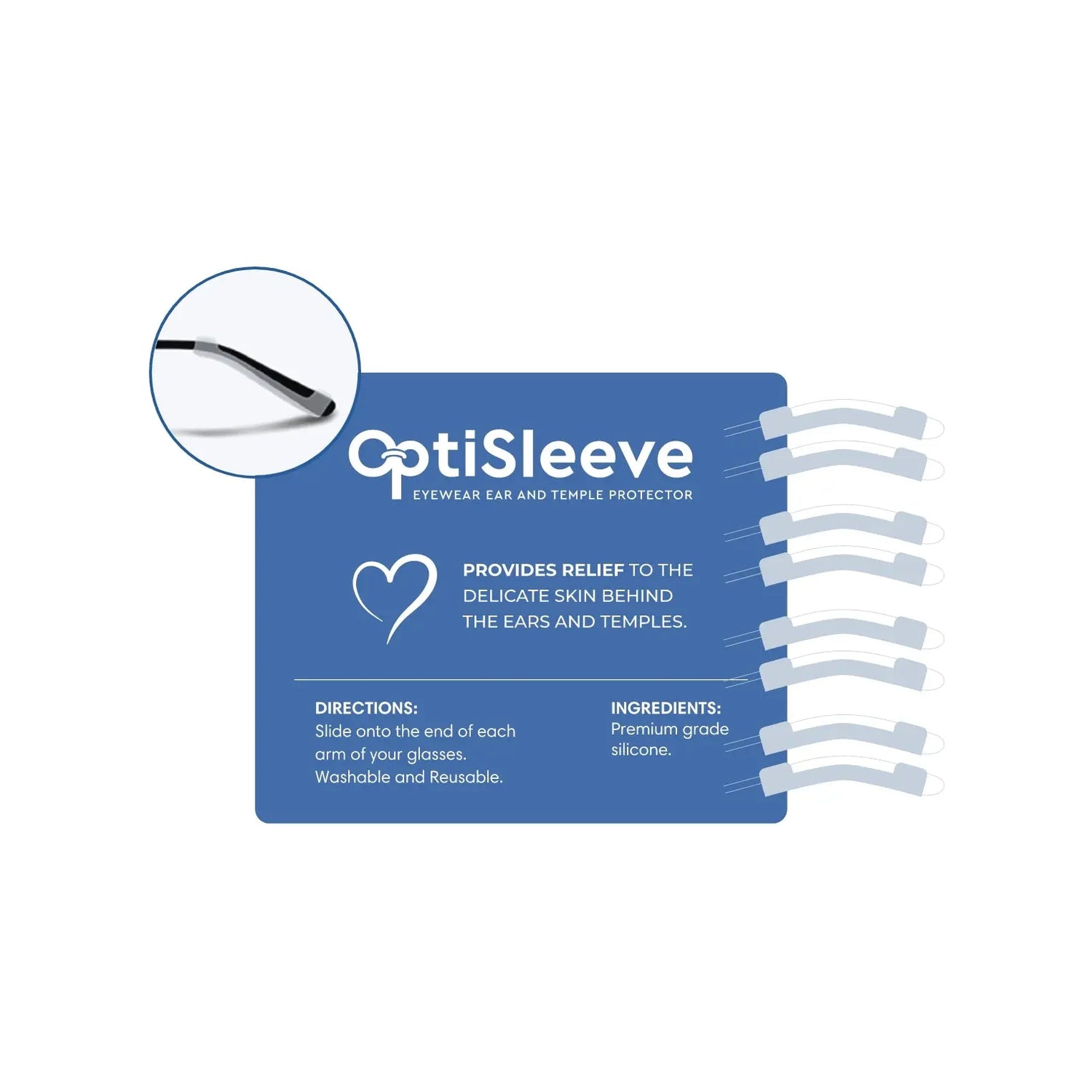

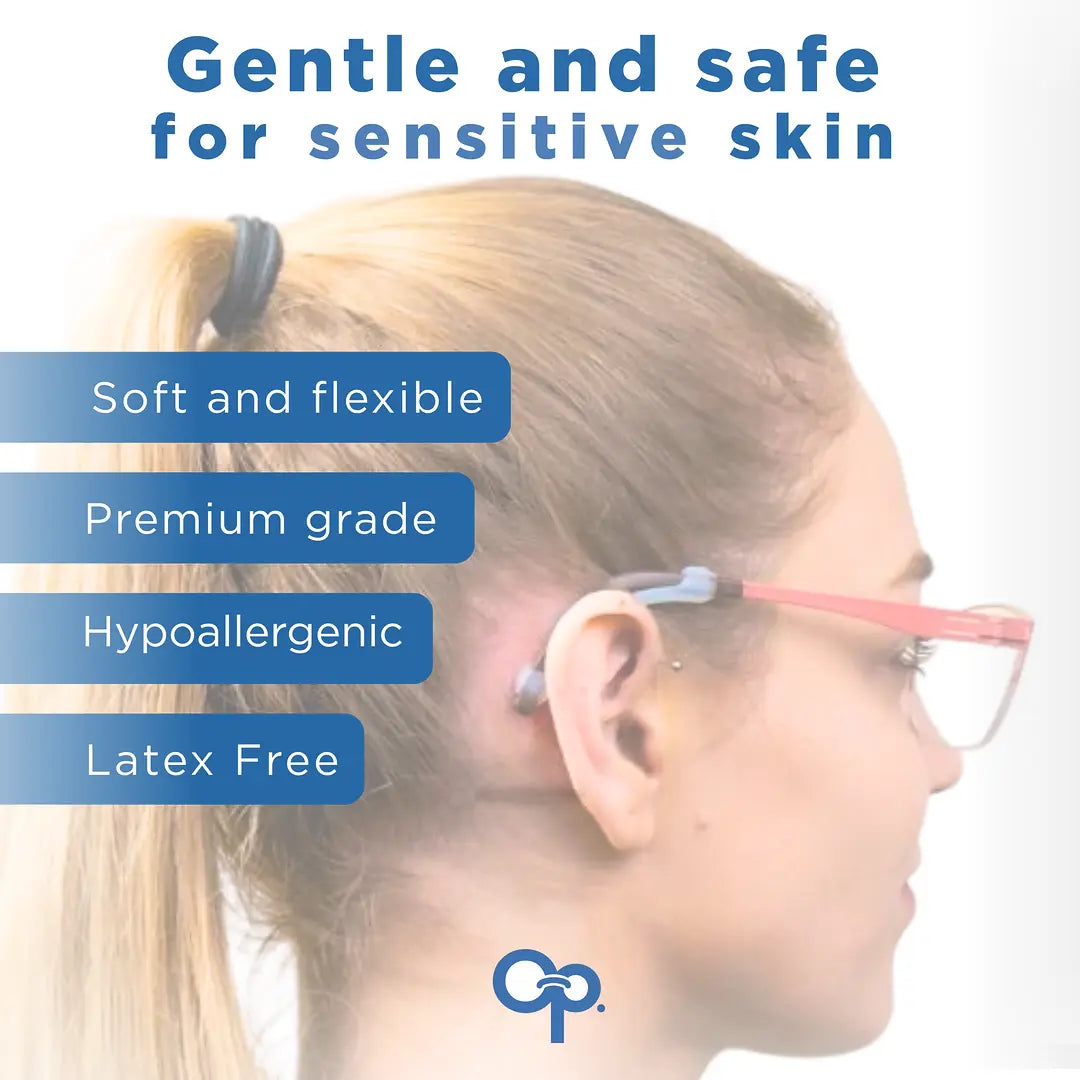
OptiSleeve: Soft Silicone Ear Grips for Glasses,Anti-Slip Comfort Sleeves & Temple Covers for Eyeglasses, Sunglasses & Safety Glasses
Secure, comfortable fit with hypo-allergenic silicone.
$12.99
Unit price perOptiSleeve: Soft Silicone Ear Grips for Glasses,Anti-Slip Comfort Sleeves & Temple Covers for Eyeglasses, Sunglasses & Safety Glasses
Secure, comfortable fit with hypo-allergenic silicone.
$12.99
Unit price perOptiSleeve: The Ultimate Ear Grips for Eyewear
Tired of your glasses slipping off or causing soreness behind your ears? Meet OptiSleeve the ultimate soft silicone ear grips for glasses that combine comfort, stability, and style in one simple upgrade.
Made from premium, hypoallergenic, and latex-free silicone, these anti-slip ear sleeves for glasses gently cushion the area behind your ears, preventing pressure, irritation, and those annoying red marks that come from long hours of wear.
The universal-fit silicone sleeves slide smoothly onto most eyewear arms (3mm–12mm wide), making them perfect for eyeglasses, sunglasses, sports eyewear, and safety goggles. Whether you’re working, exercising, or enjoying outdoor activities, OptiSleeve™ keeps your glasses secure and comfortable even when you sweat.
If you’ve been searching for anti-slip ear hooks for glasses, eyeglass comfort sleeves, or grip sleeves for spectacles, OptiSleeve™ delivers long-lasting comfort and a slip-free fit you can rely on every day.
Key Features
Anti-Slip Grip Technology: Keeps glasses securely in place no more sliding, slipping, or adjusting.
Soft Silicone Ear Cushions: Relieves pressure and pain behind the ears for all-day comfort.
Universal Compatibility: Fits most temple arms from 3mm–12mm, ideal for eyeglasses, sunglasses, and safety eyewear.
Durable & Reusable: Made from long-lasting silicone that’s easy to wash and maintain.
Hypoallergenic & Skin-Safe: Crafted from latex-free, medical-grade silicone, gentle on sensitive skin.
Versatile Design: Works as eyeglass temple sleeves, optical ear grips, or silicone temple tips for added comfort and hold.
Common Questions
Q: How can I stop my glasses from slipping behind my ears?
A: Slide OptiSleeve™ silicone ear grips onto your frame arms for a secure, non-slip fit that stays put all day.
Q: Can these be used for sunglasses or safety goggles?
A: Yes! OptiSleeve™ fits most frame styles, including sports and safety eyewear.
Q: Are they comfortable for all-day wear?
A: Absolutely the soft silicone ear sleeves provide gentle cushioning to reduce irritation and discomfort.
Q: Do these fit rimless or thin temple glasses?
A: Yes! The flexible silicone stretches to fit temples from 3mm to 12mm wide.
What’s Included
4 Pairs of OptiSleeve™ Soft Silicone Ear Grips
Universal Fit (3mm – 12mm Temple Arms)
Made from Premium, Hypoallergenic Silicone
Enhanced Comfort with OptiSleeve
OptiSleeve offers a revolutionary solution for eyeglass comfort. The soft silicone material ensures a gentle fit against your ears, reducing pressure and discomfort often associated with traditional glasses. Because they are designed to mold perfectly to the contour of your ears, OptiSleeve not only enhances comfort but also prevents your glasses from slipping. This makes them ideal for everyday wear, whether you're focusing on work or enjoying leisure activities.
Anti-Slip Solution for Active Lifestyles
One of the standout features of OptiSleeve is its anti-slip capability. These ear grips secure your eyeglasses in place, so you don’t have to worry about them sliding down during physical activities or outdoor adventures. The added grip is especially beneficial for those engaged in sports or other dynamic movements. This means you can stay active without constantly adjusting your eyewear.
Versatile Fit for Various Eyewear
OptiSleeve isn’t just for traditional eyeglasses; it’s also compatible with sunglasses and safety glasses. This versatility means you can enjoy the same level of comfort and support regardless of the type of eyewear you wear. Furthermore, installation is a breeze—simply slide them onto the temple tips of your glasses. OptiSleeve combines functionality and convenience, making it a must-have accessory for anyone who values their eye comfort.
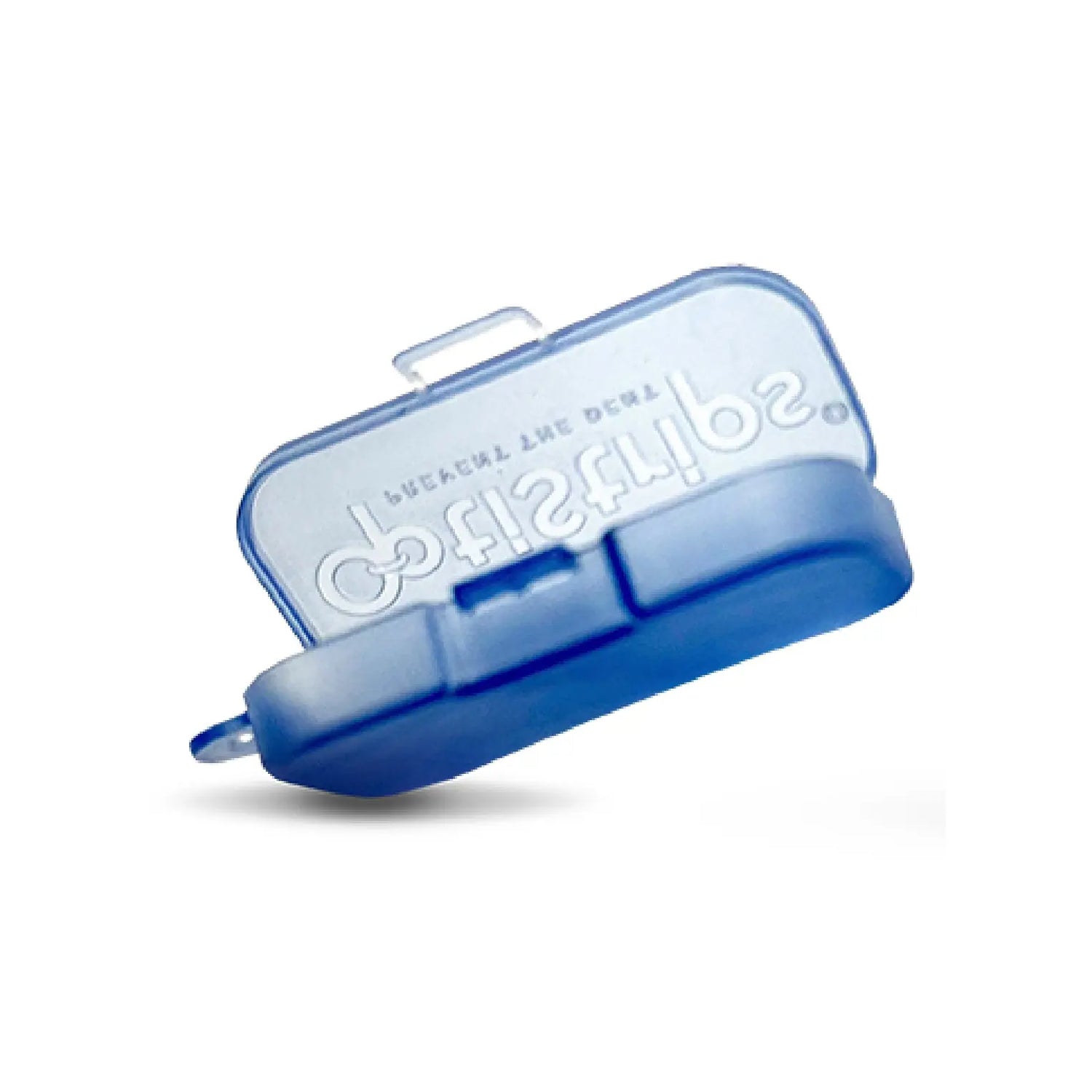
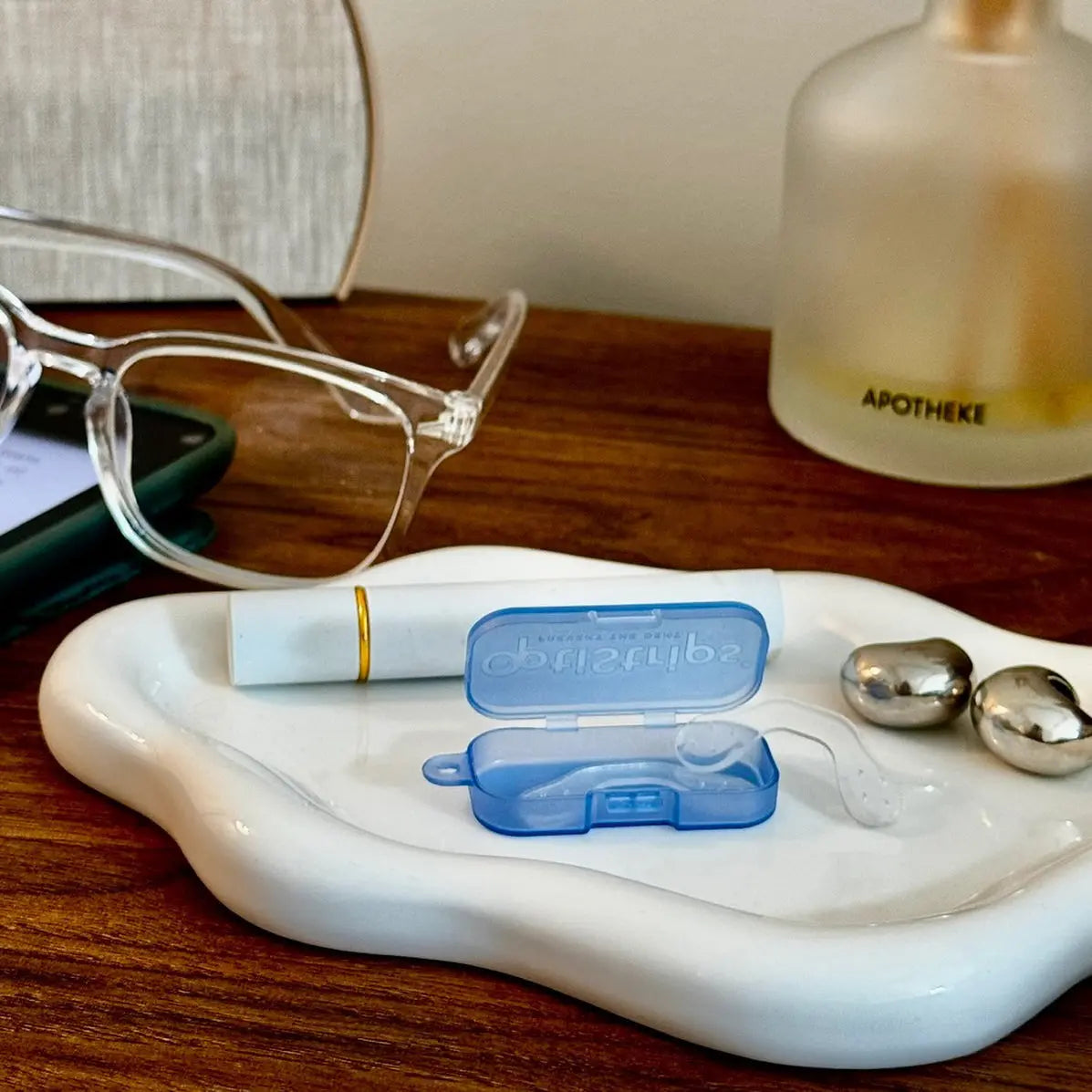
Optistrips Nose Pad Travel Case – Compact Storage for Replacement Nose Pads
Keeps OptiStrips clean and accessible on-the-go.
Optistrips Nose Pad Travel Case – Compact Storage for Replacement Nose Pads
Keeps OptiStrips clean and accessible on-the-go.
Nose Pad Travel Case for Ultimate Convenience
Keep your OptiStrips nose pads protected, clean, and easy to access with the OptiStrips Nose Pad Travel Case. Designed for convenience and durability, this compact case is the perfect way to store your anti-slip silicone nose pads for glasses and other small eyewear accessories.
Unlike bulky glasses cases or traditional eyeglass cases, the OptiStrips Nose Pad Case is lightweight and portable ideal for keeping in your pocket, travel bag, car, or work desk. Whether you need quick access to replacement nose pads for glasses or want to keep your silicone nose cushions organized, this case is a must-have for anyone who uses OptiStrips™.
Key Features:
Designed for OptiStrips™ Nose Pads – Keeps replacement nose pads secure and ready for use.
Compact & Portable – Slim design fits easily in a pocket, toiletry bag, or attaches to a key ring.
Durable Protection – Keeps silicone nose pads for glasses clean, safe, and dust-free.
Travel-Ready – Perfect for daily wearers, work, or trips.
Hygienic & Organized – Ensures your nose pads for eyeglasses are always easy to find when you need them.
Keep Your Nose Pads Organized
The Optistrips Nose Pad Travel Case is essential for anyone who wears eyewear. It provides a compact and convenient way to store your replacement nose pads. With this case, you won’t have to scramble to find a nose pad when you need it most. Instead, everything is neatly organized in one small case. This organization is especially important for travelers or individuals who frequently change their eyewear accessories.
Durable and Portable Design
This travel case is not only functional but also designed to withstand daily wear and tear. Made from durable materials, it protects your replacement nose pads from dirt and damage. Its lightweight structure makes it easy to carry in your bag, ensuring that your essential nose pads are always within reach. Because of its portability, you can be confident that you will never be without spare pads, whether you are at home or on the go.
Perfect for Every Eyewear Enthusiast
The Optistrips Nose Pad Travel Case is more than just a simple storage solution; it is tailored for the eyewear enthusiast. This case accommodates a variety of nose pad shapes and sizes, making it versatile for different eyewear brands. Because the case is designed with users in mind, it combines style with functionality, ensuring that you can carry your nose pads without compromising on aesthetics.
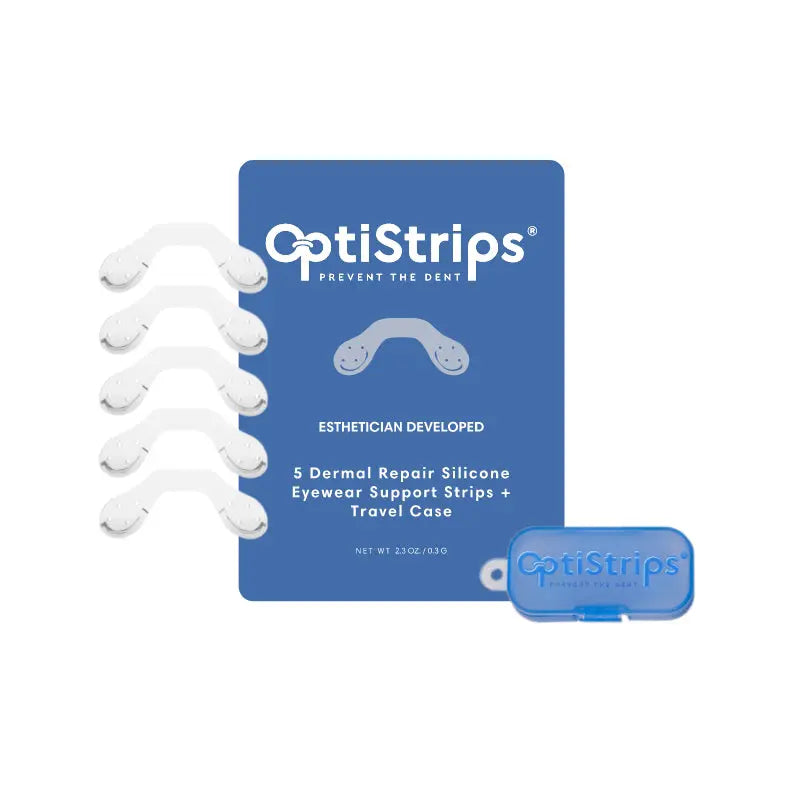

OptiStrips Soft Silicone Nose Pads for Glasses – Anti-Slip, Hypoallergenic Nose Cushions for Eyeglasses & Sunglasses
Comfortable, non-slip silicone strips for glasses.
$29.99
Unit price perOptiStrips Soft Silicone Nose Pads for Glasses – Anti-Slip, Hypoallergenic Nose Cushions for Eyeglasses & Sunglasses
Comfortable, non-slip silicone strips for glasses.
$29.99
Unit price perEnhancing Comfort with Soft Silicone Nose Pads
Why Choose Soft Silicone Nose Pads?
Soft silicone nose pads are essential for anyone who wears glasses or sunglasses. These pads provide a comfortable cushion against your nose, so they won't dig into your skin. They're also hypoallergenic, making them a perfect choice for people with sensitive skin. Because they are soft and gentle, they reduce the risk of irritation or allergic reactions, improving your overall wearing experience.
Anti-Slip Design for Better Stability
One key feature of OptiStrips soft silicone nose pads is their anti-slip design. They grip your nose firmly, which prevents your glasses from sliding down, especially during physical activities or hot weather. This stability means you won’t have to constantly push up your glasses, allowing you to focus on what really matters. In this way, you can enjoy your activities without the distraction of adjusting your eyewear.
Easy to Install and Maintain
Installing OptiStrips soft silicone nose pads is a breeze. They fit easily onto most frames, making it simple for anyone to upgrade their glasses' comfort. Additionally, these pads are easy to clean, which helps maintain hygiene. Therefore, you can enjoy fresh and comfortable nose pads without much effort, ensuring your eyewear is always in top condition. Regular maintenance ensures that your nose pads stay functional and effective for a long time.
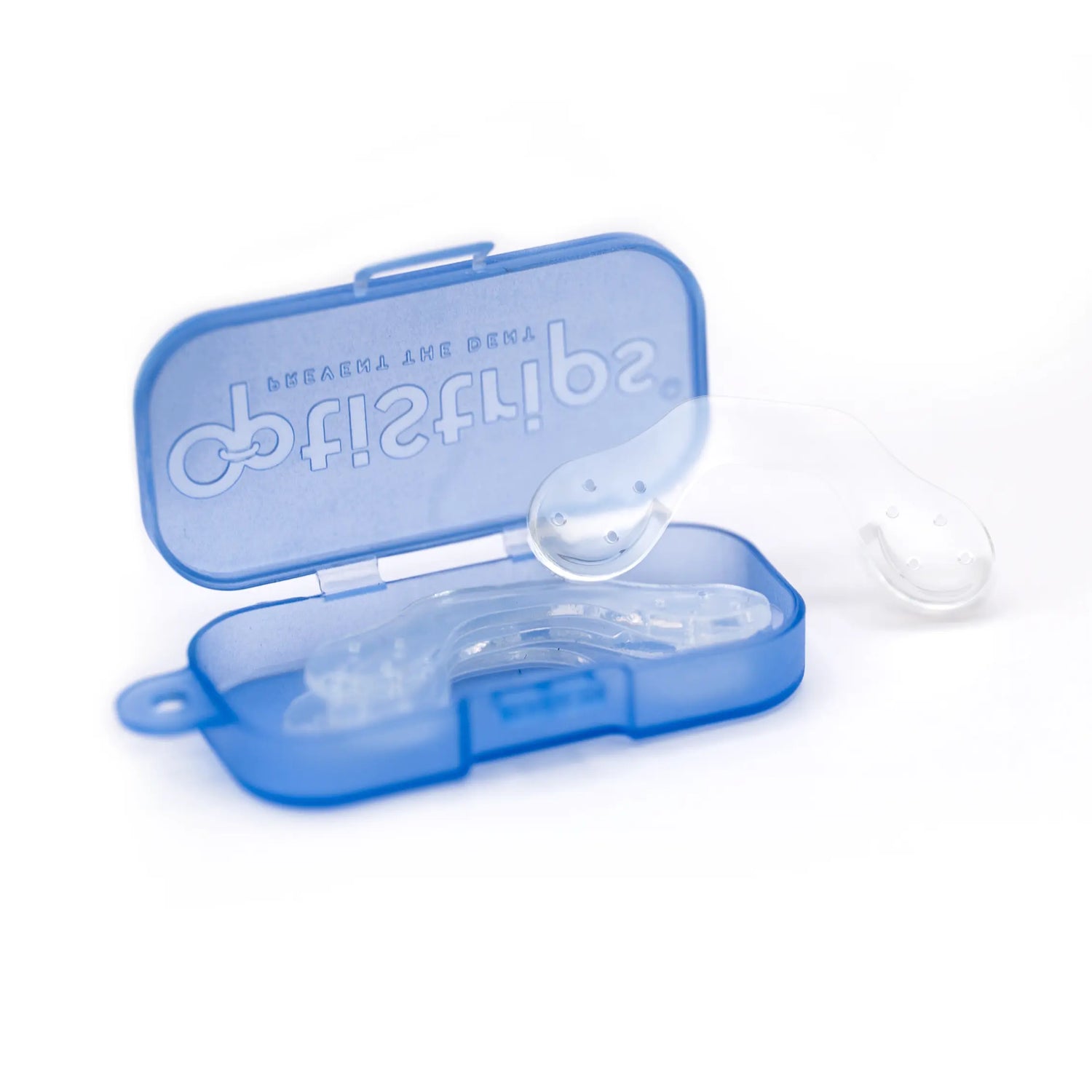
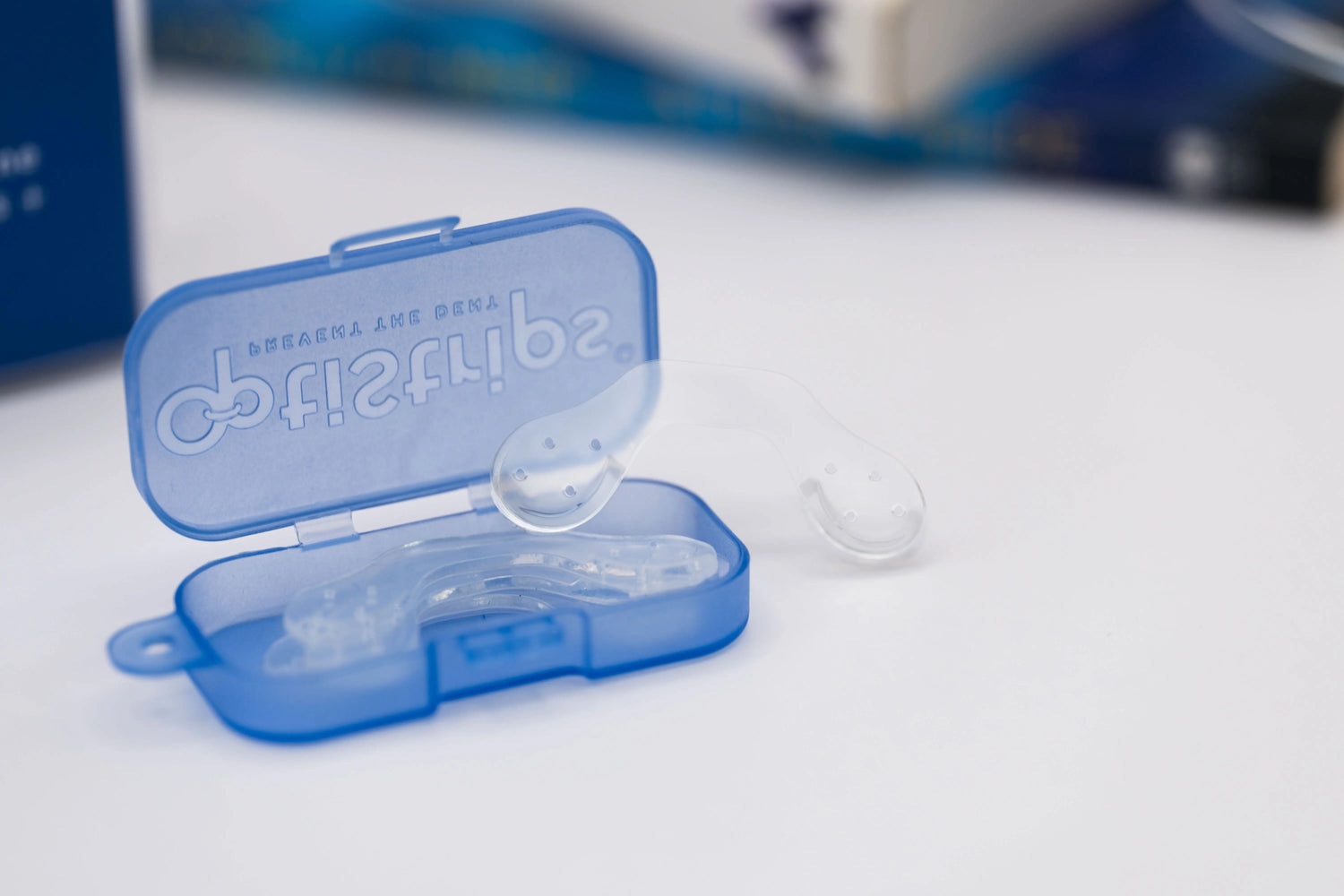
OptiStrips Trial 2 Pack – Soft Silicone Nose Pads for Glasses with Travel Case , Anti-Slip Eyeglass Nose Pad Replacement Kit
Try our product with this exclusive trial pack!
$14.99
Unit price perOptiStrips Trial 2 Pack – Soft Silicone Nose Pads for Glasses with Travel Case , Anti-Slip Eyeglass Nose Pad Replacement Kit
Try our product with this exclusive trial pack!
$14.99
Unit price perExperience Comfort with Anti-Slip Eyeglass Soft Silicone Nose Pads Replacement
Upgrade your eyewear comfort with the OptiStrips Trial 2-Pack, the perfect starter set for anyone needing reliable soft silicone nose pads for glasses, anti-slip support, and clean storage on the go. Designed to stop slipping frames and reduce pressure, these soft silicone nose pads for glasses provide a secure, cushioned fit for all-day wear.
This trial kit includes 2 reusable silicon nose pads plus a compact travel case perfect for keeping your glasses accessories nose pads clean, organized, and ready whenever you need replacement pads. Ideal for eyeglasses, sunglasses, reading glasses, and safety eyewear.
Whether you’re searching for the best nose pads, adhesive nose pads for glasses, or tools for adjusting eyeglass nose pads, this kit ensures maximum grip, comfort, and convenience.
Key Features
● Anti-Slip Silicone Nose Pads for Glasses
Provides a secure grip to prevent frames from sliding ideal for everyday use, workouts, and humid weather.
● Soft, Comfortable Nose Cushioning
Made from hypoallergenic, medical-grade silicone to reduce pressure and avoid red marks.
● Reusable & Easy to Clean
Each strip lasts up to 10 uses and is washable perfect for anyone searching how to clean glasses nose pads.
● Universal Fit for All Frame Types
Works with eyeglasses, adjustable nose pad glasses, sunglasses, and safety glasses.
● Includes Travel Storage Case
Keeps your silicone nose pads for sunglasses, adhesive pads, and replacements hygienic and organized.
● Great for Replacement Kits
Perfect for users who frequently replace pads or want a compact eyeglass nose pad replacement kit on hand.
Enhanced Grip for Improved Comfort
Our Anti-Slip Eyeglass Nose Pads Replacement is designed to provide a secure fit, helping your glasses stay in place without constant adjustments. These soft silicone pads gently cradle your nose, ensuring comfort throughout the day. Instead of the hard, uncomfortable nose pieces, our silicone version offers a cushioned feel that’s perfect for prolonged use. Because a good grip equals less shifting, you can enjoy your activities without worrying about your eyewear sliding off your face.
Easy Installation for Quick Transformation
Replacing your old nose pads has never been easier! The anti-slip eyeglass nose pad kit comes with everything you need for a quick upgrade. Just remove your existing pads and attach the new silicone ones securely in just a few simple steps. This means you won’t need special tools or professional help; you can do it on your own time. So, refresh your glasses and enjoy the enhanced fit effortlessly.
Compact Travel Case for On-the-Go Use
Every OptiStrips Trial 2 Pack includes a convenient travel case, making it easy to take your new nose pads with you wherever you go. This case ensures that your replacement pads stay organized and protected from damage, so they’re always ready when you need them. Whether you’re traveling for work or enjoying a day out, you can quickly swap out your nose pads and experience the comfort you deserve. Because comfort shouldn’t be left behind when you leave home!
Silicone Innovation
OptiStrips are crafted from high-quality silicone, a material renowned for its soft touch, flexibility, and hypoallergenic properties. This means no more marks, irritation, or discomfort from wearing glasses. Silicone is not only gentle on your skin but also incredibly durable, ensuring OptiStrips provide long-lasting comfort for daily wear
Complete Eyewear Comfort Solutions
Discover our range of innovative products designed to enhance your eyewear experience. From OptiStrips, which provide a comfortable barrier between your glasses and skin, to OptiSleeve, offering additional support and protection, our collection ensures all-day comfort and a secure fit. Say goodbye to slipping glasses and discomfort with our hypo-allergenic, medical-grade silicone solutions. Perfect for both everyday use and special occasions, our products are washable, reusable, and developed by experts to meet your needs.



